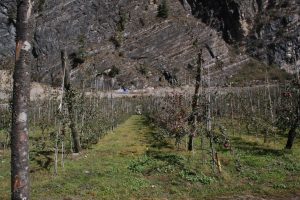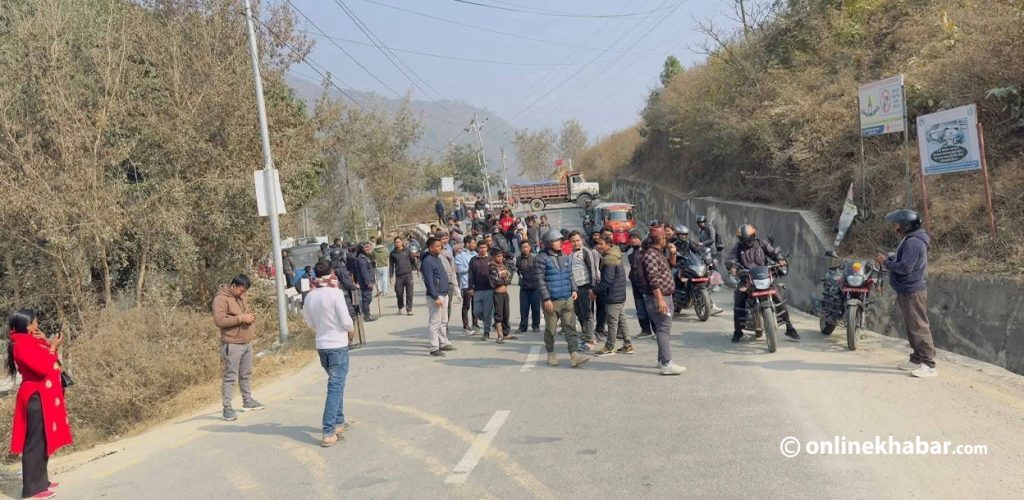
Family farming has been an integral part of our life. Being a farmer is not a job, but it is a way of life. My parents grew up working on farms and spent half of their life working for nature conservation. My father recognises plants and animal species very well, which also supports my academic career. He has dreamed of planting trees at a large scale as a private forest by the end of 2020.
But, the new generation today is always connected to social media but detached from nature and environment although some conservation initiatives and awareness programmes have been adopted globally. They need to realise that a time spent on a family farm is never wasted as it safeguards environmental assets, biodiversity and ecosystem which contributes to achieving Sustainable Development Goals.
Food and Agriculture Organisation (FAO) of the United Nations defines a family farm as a farm that relies primarily on family members for labour and management. It has profound impacts on socio-economic, environmental and cultural sectors across the globe, improving food security. My small family farm is surrounded by big concrete buildings on every side, and it is located near a busy market.
Basically, it has four major functions. Environmentally, it plays a vital role in water purification, carbon sequestration, soil fertility, pollination, fresh oxygen, and biodiversity enhancement. It ensures the peace of mind and self-satisfaction through peaceful nature.
Economically, it decreases bills of market goods, ensures business ownership, and makes the families independent. It supports the way of living through job opportunities.
Sociologically, it is connected with family values and makes society responsible through services. It is a part of survival for society as it provides food and fibre that nourish and sustain us.
Culturally, it preserves traditional norms and beliefs, religious values and territories.
Overall, it contributes to local, provincial and national markets in terms of providing healthy food and minimising trade deficit.

Over the past few years, open areas in the surroundings have changed almost into unmanaged houses and plotted lands for sale, which has a significant negative impact on farming. Human behaviours have changed with the flow of time. A few big trees near my house, where birds used to sing and build nests, have been cut off and are changed into modern furniture. The cool and fresh oxygen from trees has been replaced by smoke produced by brick kilns near the settlement area. The river where I used to go fishing and swimming is now narrowed with polluted water flowing in it. The number of fish, frogs, lizards, butterflies, dragonflies, and more species have declined dramatically within a short span. Forest areas have been encroached by locals for settlement and agriculture purposes. Overpopulation and haphazard urbanisation have become serious issues. Everything has changed in front of my naked eyes, but my family farm has remained constant.
In my farm, various tree species have become the habitat of birds. In the past three months, I have seen 23 bird species in two nests there. The farm is managed in such a way that insects, pollinators, birds, and small wild animals can find food and shelter. A few goats, chickens and ducks are also parts of my farm, which play a vital role to convert waste into compost.

We generally reuse and recycle about 70% of the waste at home. For instance, the remaining food products like vegetables, fruits and by-products of vegetation are utilised by goats. Plastic bags and bottles are re-used. My mother is strict in the case of reusing the materials, plastic bags and bottles in particular. The remaining glass and electrical items are sent to disposal sites through the municipal system.
Personally, I feel self-employed with job satisfaction and subjective well being when it comes to family farming. A feeling of spiritual harmony and happiness circulates throughout my body when I spend time on the farm picking some vegetables and fruits despite a few difficulties. Moreover, chirping of birds is something that pleases me in the early hours of a day. It makes me feel that I am closer to nature and makes my day positive. The morning breezes from the northern side and songs of the birds make a perfect time to start a day. The birds are amazing creatures on the earth and I find them absolutely graceful.
The farm is just a small one that does not contribute to the country’s gross domestic product (GDP) but definitely contributes to decreasing imports from India. It has livestock, vegetables, fruits and cereal crops. The production is mainly for home consumption; it is dependent on seasons and weather conditions. If farming is considered seriously and it is adopted at a large scale, our country will be independent in terms of food security and can recover from a negative trade balance in food products.

Thousands of Nepali migrant workers are expected to return to Nepal from their working countries due to the Covid-19 crisis. It will increase the employment crisis, causing stress in people and pushing them towards poverty. Over 1,000 cases of suicide have already been reported during the lockdown, apparently due to anxiety, depression, fear, financial problems and more. All things considered, a family farm like mine can be one of the solutions in returning to the normal life contributing to the idea of prosperous Nepal and happy Nepalis. Local governments should promote such initiatives, for example, by ensuring access to market and operational freedom. Policies must support and encourage the increase in farmers’ access to productive resources, land and capital in particular. Then, we, youth, are always ready to start enterprises and make our country independent in terms of food security.
Sharma is an environmental science student in Kathmandu.























